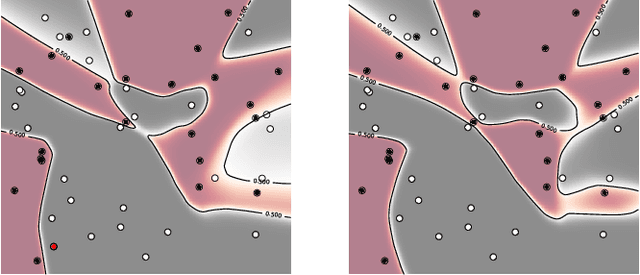Leave-one-out Unfairness
Paper and Code
Jul 21, 2021



We introduce leave-one-out unfairness, which characterizes how likely a model's prediction for an individual will change due to the inclusion or removal of a single other person in the model's training data. Leave-one-out unfairness appeals to the idea that fair decisions are not arbitrary: they should not be based on the chance event of any one person's inclusion in the training data. Leave-one-out unfairness is closely related to algorithmic stability, but it focuses on the consistency of an individual point's prediction outcome over unit changes to the training data, rather than the error of the model in aggregate. Beyond formalizing leave-one-out unfairness, we characterize the extent to which deep models behave leave-one-out unfairly on real data, including in cases where the generalization error is small. Further, we demonstrate that adversarial training and randomized smoothing techniques have opposite effects on leave-one-out fairness, which sheds light on the relationships between robustness, memorization, individual fairness, and leave-one-out fairness in deep models. Finally, we discuss salient practical applications that may be negatively affected by leave-one-out unfairness.
 Add to Chrome
Add to Chrome Add to Firefox
Add to Firefox Add to Edge
Add to Edge